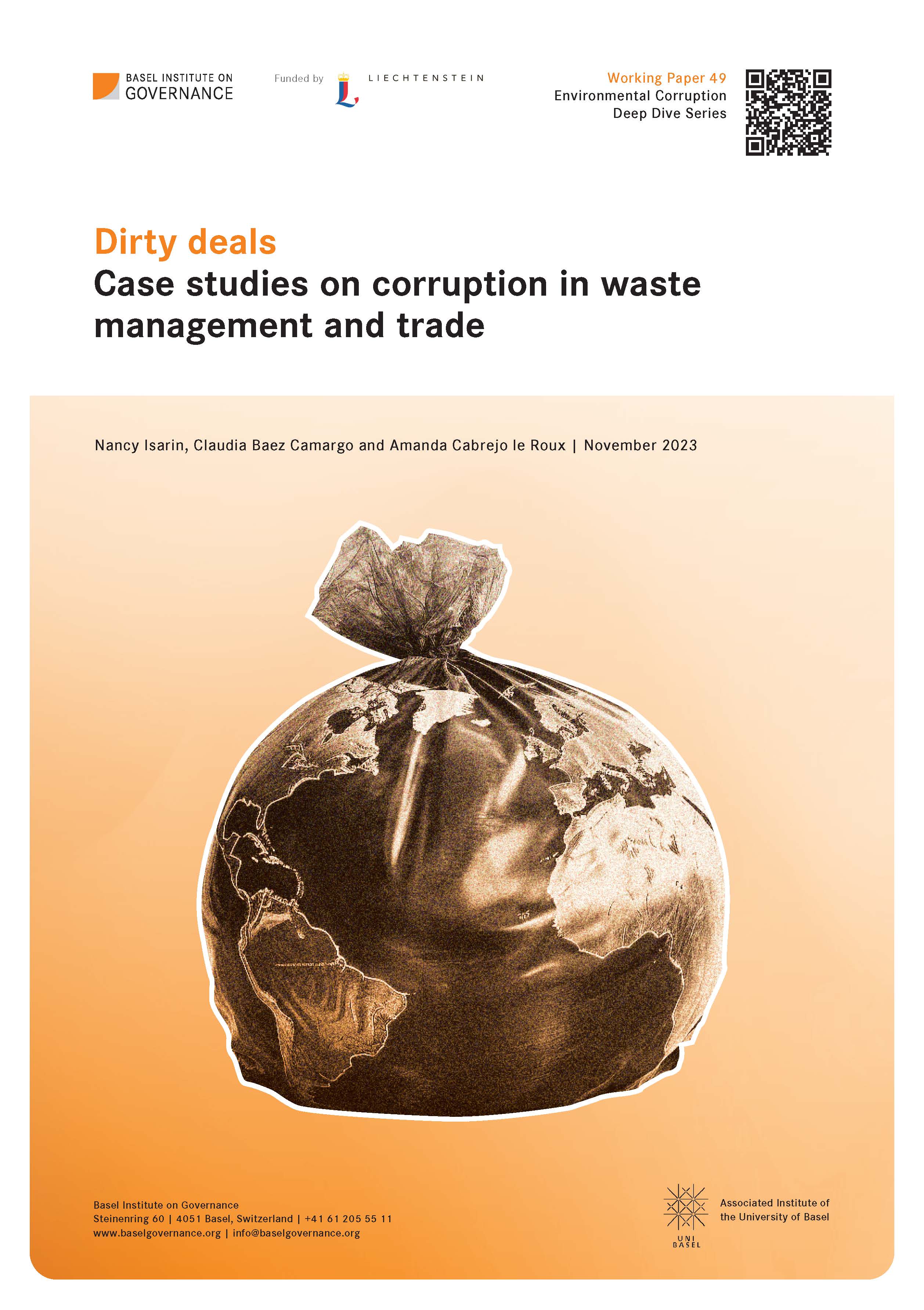Working Paper 49: Dirty deals – Case studies on corruption in waste management and trade
Abstract
Waste management is a huge industry at the local, national and international levels. Public services play a key role in dealing especially with waste generated by households. Getting waste management right is essential if we are to achieve a circular economy and the Sustainable Development Goals.
Complex legal frameworks and their weak implementation open up spaces for criminals to profit from illegally managing or trading in waste. The consequences on the environment and human health can be severe. The role of corruption in crimes involving waste is unexplored.
An initial analysis shows the potential for corruption to play a role in:
- influencing policy decisions involving waste management;
- corrupt deals involving the selection of waste management companies linked to powerful elites;
- schemes to gain lucrative waste management contracts through systematic bribery;
- illegal imports of hazardous substances for profit, avoiding or suppressing formal controls.
The report explores five case studies (Albania, Lebanon, North Macedonia, Canada–Philippines, US–South America) and proposes a typology of corruption patterns in crimes involving waste management and trade.

Downloads
Published
How to Cite
Issue
Section
License

This work is licensed under a Creative Commons Attribution-NonCommercial-NoDerivatives 4.0 International License.

